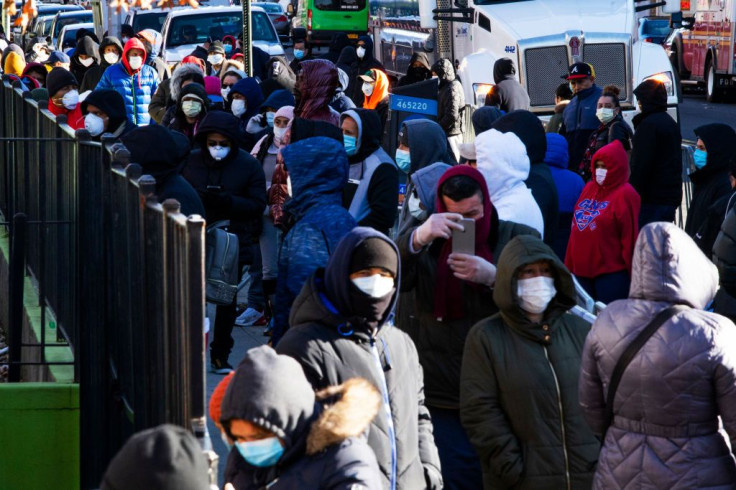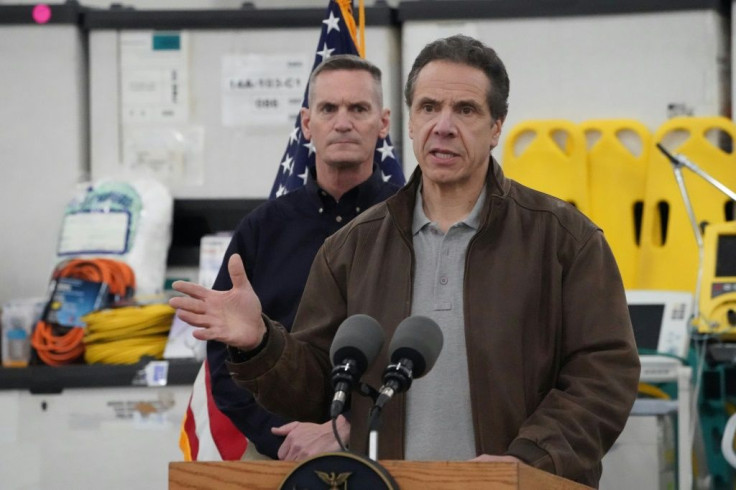Coronavirus USA Update: US Death Toll Nearing 1,000; 65,527 Confirmed Cases

KEY POINTS
- The U.S. had to deal with 12,322 more confirmed COVID-19 cases Wednesday, a new high
- It also reeled from 241 more deaths, another new high
- The worst is yet to come with some experts predicting a peak in about three weeks from now
On Wednesday, when the United States reported 241 deaths due to COVID-19 -- another new high in daily deaths -- and 65,527 confirmed cases, according to Worldometer, it's coming to grips with the grim reality New Orleans and Louisiana are evolving into jumping-off points for spreading the disease farther into the south.
In the United States as a whole, however, Wednesday saw the country's confirmed COVID-19 cases swell to 65,527 and 928 deaths as of 22:44 GMT compared to the 53,205 cases and 687 deaths as of the same time Tuesday, according to Worldometer. There were 12,322 more cases and 241 more deaths on Wednesday compared to Tuesday.
The U.S. confirmed COVID-19 cases remain the third largest in the world while its total deaths remain the sixth largest in the world as of Wednesday.
Health experts agree New Orleans is on track to becoming the next COVID-19 epicenter given it now has the world’s highest growth rate in coronavirus cases. Louisiana is also in the same boat. Gov. John Bel Edwards (D) admits his state is already number three in the U.S. in per capita coronavirus cases.
Bel Edwards revealed COVID-19 cases in Louisiana jumped by more than 400 Wednesday with the 19 new deaths bringing the state's total to 65. About 70% of Louisiana’s 1,795 confirmed cases to date are in the New Orleans metro area.
Bel Edwards warns the state's capacity to deal with the pandemic will last only until April 7 while other officials say the state's hospitals might collapse as early as April 4. Health experts are concerned the rapidly worsening healthcare situation in both New Orleans and Louisiana might trigger the faster and deeper spread of the disease into more southern states.
The dire situation in Louisiana has also shattered hopes the less densely populated and warmer-climate cities in the South might not be hit as hard by the pandemic. It's becoming more apparent the hotter summer weather in the South might not slow down the disease's spread.
Embattled New York State, however, remains the country's coronavirus epicenter. On Wednesday, the Empire State reported 30,811 confirmed cases, an increase of 4,463 from Tuesday. It also revealed 14 more deaths to bring its death toll to 285. Of the state's total confirmed cases, 17,856 were accounted for by New York City. New Jersey was second on the infection list, with 4,402 total cases and at least 727 new infections.

Gov. Andrew Cuomo had some good news Monday. On Wednesday, he said social distancing appears to be working in the state. He said New York had 4,790 new confirmed coronavirus cases Tuesday, a drop from the 5,707 cases Monday. He noted this was the first time in over a week new cases were lower than the day before. Cuomo, however, cautioned the outbreak is expected to peak in about two to three weeks.
He also revealed estimates showing coronavirus hospitalizations doubling every two days, as of Sunday. Monday's estimates, however, show hospitalizations doubling every 3.4 days. Tuesday's estimates show hospitalizations doubling every 4.7 days.
"That is almost too good to be true," said Cuomo. "But the theory is given the density that we're dealing with, it spreads very quickly, but if you reduce the density you can reduce the spread very quickly."
© Copyright IBTimes 2025. All rights reserved.





















